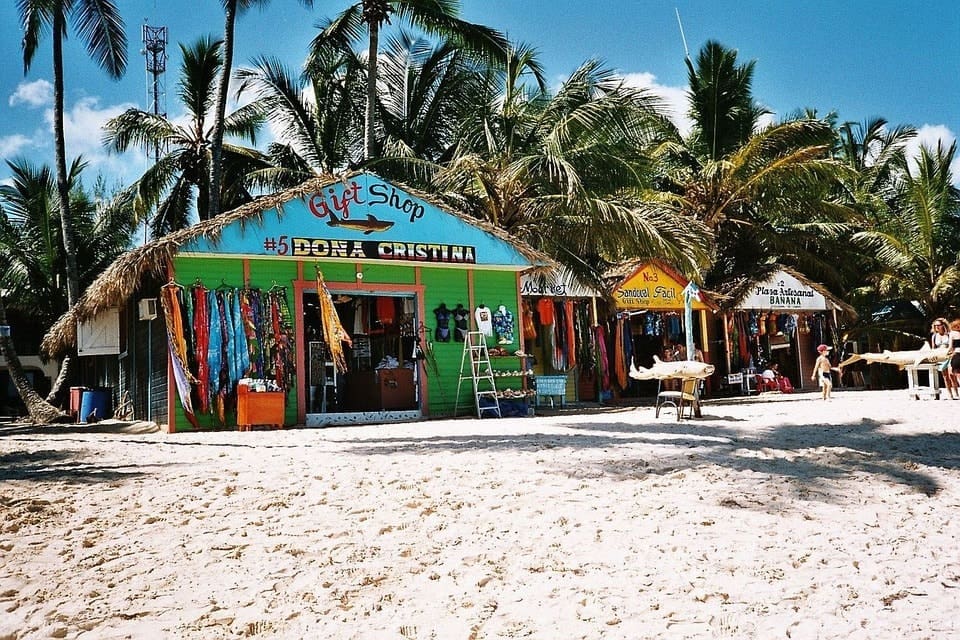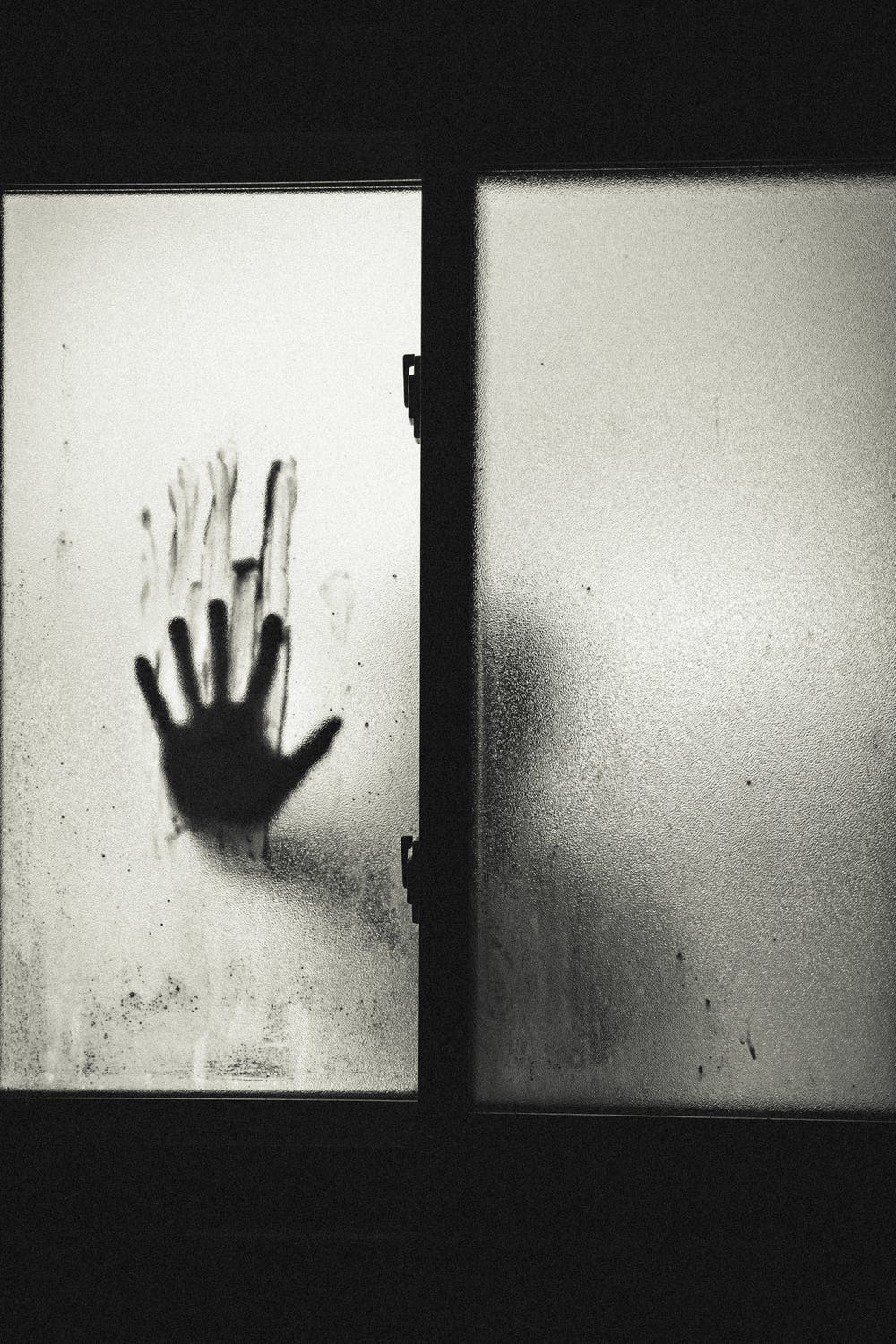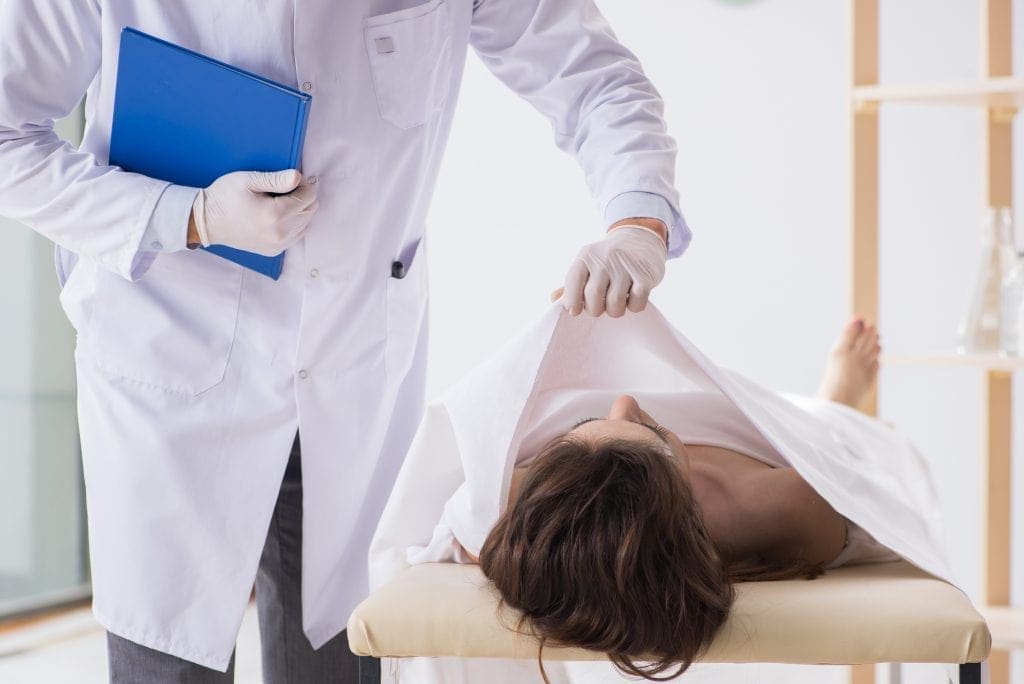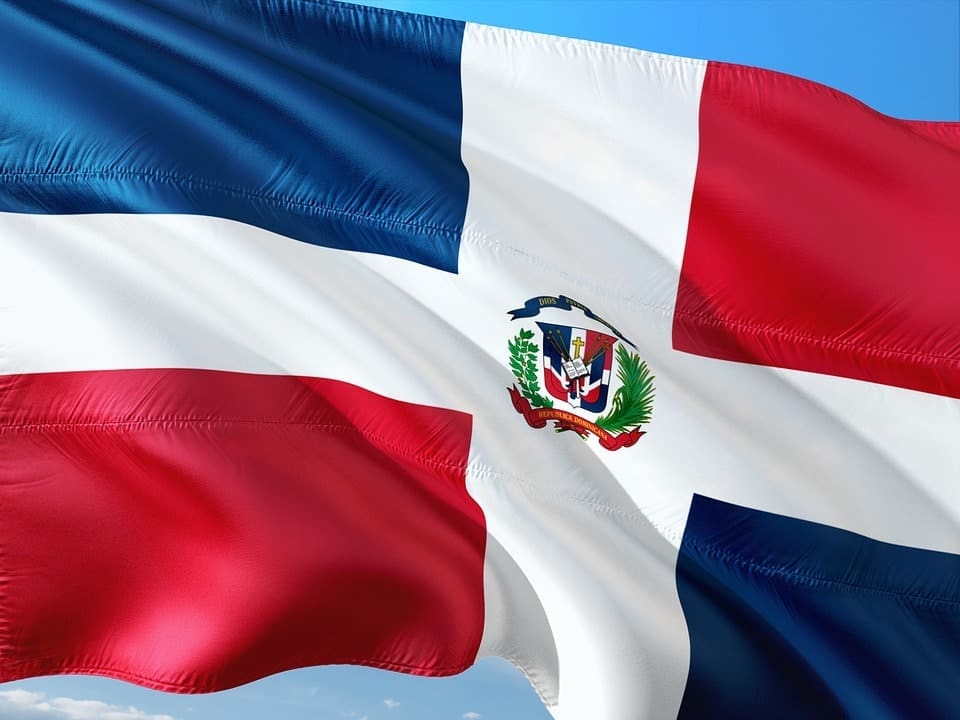I’ve been planning a family vacation lately, and I’ve gotta say, I’ve been extremely concerned about safety. You have to be these days. It’s downright dangerous in some places. The recent spate of deaths has me significantly worried about specific destinations. You have to wonder about whether the locations are up to code in terms of chemical exposure, access to emergency services, structural soundness, and a lot more. The death rates are particularly alarming. I have to wonder if the news cycle is giving adequate attention to all this.
What? The Dominican Republic? That’s what you think I’m talking about? Please. I’m talking about the danger of staying stateside.
I’m serious. It’s simple math. According to the U.S. State Department, approximately 2.2 million Americans visit the Dominican Republic every year. The current hullabaloo is over a cumulative 10 deaths of American tourists there over the past year. That’s a death rate of 0.000364%, 03 0.36 deaths per thousand people annually.
In contrast, the U.S., with a population of 330,000,000, sees about 7452 deaths daily, which is .00226%, or 2.26 deaths per thousand people. This means you’re about 6.2x more likely to die staying at home than you are on a vacation to the Dominican Republic.
Does that contrast seem silly? It is, but so is the panic surrounding the tourist deaths in the Dominican Republic. Let’s break it down.
What exactly is going on in the Dominican Republic?

The story is relatively new to most of us, but it technically stretches back to June of 2018 and the death of a woman named Yvette Monique Sport. The 51 year old woman was on her first vacation in eight years and enjoying a late night drink from a minibar at the Bahia Principe. Minibars in the Dominican Republic are famous (infamous?) in that they aren’t just stocked with your average overpriced miniature bottles; they generally dispense drinks from large bottles of vodka, rum, tequila, and whisky. After imbibing, she took a shower and went to bed. Her fiance reported she made a “gurgling” sound in her sleep, and he found her dead the next morning.
Her death was most definitely tragic, and the storyline of a night of drinking and not waking the next morning was one that would repeat with Robert Wallace, age 67, in April of 2019. It’s believed that the drinking likely aggravated a case of pneumonia, and he died from multiple organ failure. Still, other reports from tourists of feeling ill after drinking from the minibar, though no connection has been substantiated, has led hotels in the area to eliminate liquor dispensers moving forward.
That’s only two of the deaths, though. What of the rest? David Harrison, age 45, is the next person who comes up on the list. He was vacationing with his wife and son at the Hard Rock Hotel in Punta Cana when he complained he wasn’t feeling well. Assuming it was food poisoning, he returned to the hotel room to rest, eventually going to the casino with his wife around 2:30 AM. They wound up heading back to the room shortly thereafter, with Harrison still feeling under the weather. Around 5 AM, it was clear something was very wrong, and his wife, Dawn McCoy, called for help.
Hotel policy dictated that the first line of response was to have the hotel doctor assess the situation. There’s no denying that was not the appropriate intervention in this case. Precious time was wasted. Between the wait for the doctor, the assessment, and the call for the ambulance, it took 52 minutes for the ambulance to arrive. Harrison died later the next day. After an autopsy and toxicology report were completed, the cause of death was revealed to be severely clogged arteries.
Harrison was not the only one to die from health conditions.
Miranda Schaup-Werner, age 41, also died of a heart attack, but as her husband confirmed, had struggled with heart issues all her life.
Nathaniel Holmes, age 63, and Cynthia Day, age 49, were found dead in their hotel room with extensive internal bleeding and fluid in their lungs. Their bodies showed symptoms of long-term, serious preexisting conditions. Holmes had an enlarged heart and cirrhosis of the liver. Day had fluid on the brain. Blood pressure medication and prescription opiods were found in the room.
John Corcoran, 60 year old brother of real estate mogul and star of Shark Tank Barbara Corcoran, died of a heart attack on June 13th at the Hard Rock Hotel.
Leyla Cox, age 53, died of a heart attack, too, as did Joseph Allen, age 55, according to preliminary autopsy results.
And Vittorio Caruso, age 56, had battled hypertension for years and had a history of chronic obstructive pulmonary disease. He had been complaining of chest pain and trouble breathing for weeks before dying from cardiorespiratory arrest.
In theory, this shouldn’t be a story. As the CDC reports, about half of American tourist deaths abroad are from cardiovascular problems or other preexisting health conditions. Dominican authorities have thoroughly investigated each of the deaths in question. No foul play nor serious safety concerns have arisen from those investigations. The U.S. State Department itself has indicated there is no reason for worry. As the Department said in a statement to the New York Daily News:
We are closely monitoring ongoing investigations by Dominican authorities into several recent deaths of U.S. citizens in the Dominican Republic. While the overwhelming majority travel without incident, we want to assure all Americans that we continue to work actively with the Dominican authorities at the very highest levels to ensure that U.S. citizens are safe and feel safe while in the Dominican Republic.
Look, I am not saying with absolute certainty that there was no foul play involved here, but what I am saying is that a level of caution should be observed when spreading misinformation or jumping to conclusions based on hearsay.
It is possible there was foul play in 1 or more of these cases, but the facts seem to point a different direction.
So how did we get into such a panic?


The Dominican Republic’s economy is heavily dependent on tourism. It accounts for 8% of its total GDP and as of 2018 had created more than 330,000 direct jobs, more than half of which were held by women, to accommodate more than 6 million visitors. As of 2017, nearly half of those visitors came from the U.S. That makes the current commotion particularly problematic.
According to the American Society for Travel Advisors, 60% of its members cancelled their flights to the Dominican Republic last week. Analysis of last year’s flight data for the same two weeks in June shows a 45% decrease year over year. Not helping things? Despite assurances that things are safe, the State Department has issued a Level 2 warning for travel to the Dominican Republic, urging increased caution. Sure, it’s due to crime-related risks – nothing to do with the deaths that have made headlines – but still.
If we’re looking at the stories that are punctuating the news cycle, they don’t seem to justify these cancellation numbers, which begs the question: how exactly did we get here? There seem to be three separate reasons.
First off, people love a good story, and there’s a good story being spun. It didn’t start with the death of Sport back in June of last year. In fact, it didn’t really get going until the deaths of Schaup-Werner, Holmes, and Day. Why? Their rooms were right next to each other, and they died within days of each other.
I can hear you yelling “AHA!” from the other side of this computer screen. Simmer down, please. Remember that there were significant health issues in play for all of these individuals prior to their deaths. Consider that framing the story as mysterious and insidious is more likely to get clicks and keep viewers on the channel than reporting something as tragic but medically explicable. Note that once that ball gets rolling, it gets easier to keep it going.
And that’s the second reason this so-called crisis exists: the snowball effect. After the story was presented in sensational fashion, it needed to be fed, and that’s exactly what happened. Despite everyone with any knowledge or authority pointing out that there was no connection between these deaths, connections were presented anyway. Loved ones of those who’d past, desperate for answers, grieving, angry, looking for answers, were pulled into the story.
McCoy, Harrison’s wife, openly admitted to the New York Times in a recent article that she wasn’t at all suspicious of anything being amiss until the news cycles started up. The couple had been to the Dominican Republic 18 times without incident. Now?
“I like to say, we were lucky 18 times.”


Cox’s son refused to accept the autopsy finding that her heart showed of previous heart attacks, even though nearly half of people, especially women, don’t realize they’ve had a heart attack at the time. He’s lashed out at the Dominican Republic’s government, accusing them of a coverup.
Allen is one of the more recently deceased, and only the preliminary autopsy results have been released, indicating he died from a heart attack. His family is already expressing frustration, with his brother stating he’d just had a physical and received a “clean bill of health.” But think back to the last time you had a physical. Did you undergo a cardiac stress test? Get an EKG? Walk away having a solid idea about whether or not you had any plaque build up in your arteries? Allen, with his size, displayed a risk factor for heart disease. At this juncture, it makes sense to wait for the full autopsy. But the news cycle doesn’t care, and it actively courts an emotional family response.
It’s not just about those who have died, though. It’s also about those who have fallen ill. By which I mean, it’s about people seeking five minutes of fame. From has-been reality TV stars to “local woman” color pieces to a tour group with food poisoning (ok, but seriously, how did they categorize that in the “crime” section of their website?), it’s been a chorus of “me too!” stories that keep the headlines fresh. Still others have had no problem skirting the edge of the limelight with retrospectives, going so far as to file lawsuits, even if their own experiences have no substantiated ties to anything that happened at the resorts. A lot of what all of them relate is based on speculation, with their own doctors unable to pinpoint causes for their symptoms. But hey, it makes a good story.
It doesn’t matter that experts have conducted autopsies. It doesn’t matter that the State Department has expressed confidence in the investigations taking place, even lending a hand from the FBI in the process. It doesn’t matter that experts stateside have backed up the findings. It doesn’t matter that getting sick while traveling is incredibly common. And oh, hey, it’s entirely possible that a good number of people complaining of falling ill in the Dominican Republic were not following advice widely publicized advice on things like not drinking tap water (also true of many other popular vacation spots), in which case, sorry dudes, that’s on you.
But speaking of the FBI component, that’s part of the third reason everything’s gotten out of hand: the reaction of both the U.S and Dominican Republic’s governments. This should be a nothing burger. It should have blown over by now. The media has certainly not helped things, but the government seems hell bent on giving their concerns credence.
On the U.S. end, despite insistence that there is no variance in the level of deaths relative to the level of American tourists traveling to the Dominican Republic, the U.S. Embassy has confirmed that the FBI is assisting in the investigation into the deaths that have occurred in the past year. They are specifically assisting with completing and analyzing the toxicology reports for Schaup-Werner, Holmes, and Day. Allen’s brother is lobbying to have his case included as well.
On face, there’s nothing wrong with that. It should be interpreted as due diligence. Instead, it’s being framed as some sort of indication of something nefarious being addressed.
This has not been helped by the Dominican Republic appearing to be in crisis mode. They are, in theory, doing everything right. Communication with the public has been frequent and transparent. There’s the minibar policy change. The resorts serve brand name liquors sourced from the U.S. with the exception of selected local brands, all of which are subject to rigorous safety protocols, but will now being contracting with third-party U.S. laboratories for testing. The Hard Rock Hotel, in particular, will be working with a U.S. based health-care facility to ensure their guests have access to the best medical care.
But it’s almost overkill. As Dr. Lauren Duffy, a professor at Clemson University and expert on the Dominican Republic’s tourism industry, explained to the New York Times:
The perception of safety has already been attacked. You can see how vulnerable tourism-dependent countries are to a crisis like this, and I’m calling it a crisis because they’re starting to roll out the media campaign and the crisis response.
In other words, you’ve got the media telling everyone there’s something very wrong in the Dominican Republic, a number of other people all too willing to back them up, and two governments acting like there might be something to the story… even though there’s not.
The stupid. It hurts.
So… should I cancel my trip?


For the love of god, NO.
As a matter of fact, you should probably plan your next trip right now while everyone else is canceling. I have not looked at the rates yet, but I am going to take a shot in the dark and assume they are plummeting to make sure rooms are filled.
Listen, there are risks whenever you travel. You could get sick. You could lose your luggage. You could get locked out of your hotel room. You could get mugged walking home from a bar. You could break your arm in a fluke water skiing accident. The list goes on.
But guess what? If you stay home, you could get sick. You could lose your purse on the subway. You could forget your keys as you head out the door. You could get mugged walking home from work. You could break your ankle slipping on the escalator. The list goes on.
There’s no need to forgo a trip to the Dominican Republic. There are just a few things to keep in mind if you’re still feeling uneasy after all of this.
For those planning on traveling to a foreign country, remember that it’s highly advised to not be the jerk who doesn’t do their research, gets sick as a result, and blames said country for their own lack of preparation. If you’re worried about a heart attack (and you should be – heart disease is the leading cause of death in America), avoiding McDonalds is a much more effective strategy for survival than skipping a vacation. And instead of speculating about unsubstantiated potential pesticide use on the island that might make you feel sick for a few days, maybe call your representative stateside about the 1.1 billion pounds of pesticides running into U.S. waterways per year and its ties to cancer instead.
Just sayin’.
Cover Image credits




